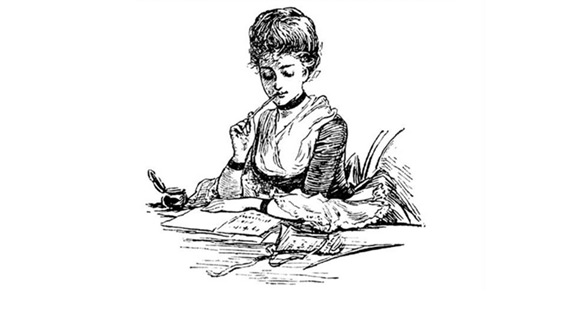
Reassessing Women's Writing of the 1840s and 1850s
Despite the anticipated damp proclivities of the Great British Summer, the sun shone down on the Canterbury Christ Church University campus at the inaugural ICVWW conference which took place on 21-22 July 2014.
With around forty speakers from all over the world, representing universities as far afield as the Philippines, Canada, Malta, Kuwait and Portugal, as well as a generous sprinkling of home-grown talent and independent thinkers, the conference engendered (if you’ll excuse the pun) a wide range of thoughts about women writers of the 1840s and 1850s.
Day one saw three sessions of parallel panels which looked at female identity, performance, crime and international influences amongst other themes, and considered questions of genre, historical transitions, cultivation of feelings and contemporary receptions of these ideas. Each paper offered a new variation on the central focus, unearthing neglected writers such as Catherine Sinclair and Caroline Clive or bringing a new approach to better known writers such as the Brontë sisters and Charlotte Yonge. The crime panel proved particularly popular with standing-room only to hear papers on arson and madness in Paul Ferroll and to revel in the cross-dressing globe-trotting exploits of Amelia B Edwards in her capacity as an early Victorian female crime writer.
Interspersed with an impressive array of Danish pastries and sandwiches, day one set the tone for a friendly and relaxed conference which mixed healthy academic debate with the emergence of new friendships and ever-growing reading lists. Professor Valerie Sanders completed proceedings with her keynote address discussing Harriet Martineau’s children’s fiction, which offered amusing accounts of terrifying tales, complete with a suitably instructive moral upbraiding! In defiance of Victorian notions of temperance, the wine reception now beckoned temptingly within the beautiful grounds of the 16th century Grade II listed St Martin’s Priory, offering a chance to relax and process the thoughts of the day.
Any chance of quiet reflection over dinner was boisterously interrupted by the acapella quartet Cantaur who surprised diners with their renditions of bawdy music-hall style songs from the Canterbury Catch Club. Flamboyantly introduced and led by Chris Price, the group added a little local charm to the evening’s proceedings and accompanied the wonderful food with admirable aplomb!
Day two blossomed surprisingly early for those of us with excusable jet lag or less excusable wine reception tiredness. Three parallel panels kicked off the day’s proceedings, considering discourses on health, history and honour through the works of Elizabeth Gaskell, Harriet Martineau, Charlotte Brontë and Agnes Strickland. After a quick refreshment stop, the second panels considered women who worked not just as traditional writers, but as essayists, editors, managers and even those that dabbled with writing merely to support other career choices, and looked at a number of women who are not widely known as professionals, either because they published anonymously, were discouraged in their efforts to write or have been forgotten in the passages of time.
Lunch allowed another opportunity to meet new delegates and discuss ideas prompted by the papers (and the comparison of surprisingly adept PowerPoint skills) before the final round of panels commenced. The female poetry panel was very well attended, with papers contemplating Adelaide Proctor, Emily Dickinson and Christina Rossetti within their cultural and topographical context, while themes of domesticity dominated the parallel session in discussions around household power relations and matrimonial reform.
Professor Gail Marshall delivered a fascinating keynote address based around her research of one specific year, 1859, for which she is writing a micro-history monograph. Gail’s paper touched on many of the areas considered in the panels and helped to consolidate the views of women writers in the early Victorian period, namely that they were far more than the one dimensional moralising conformists represented in many aspects of popular culture today.
Day two finished with a round table discussion considering the advantages and disadvantages of collaboration, social media and online resources, exploring career options beyond traditional academia and affirming that the obvious route is not always the most interesting! Inspired, enthused, if a little exhausted, delegates traded Twitter names, Facebook details, and for the more traditional, business cards, before making the journeys back to their respective towers of knowledge for a well-deserved rest. Same again next year anyone?